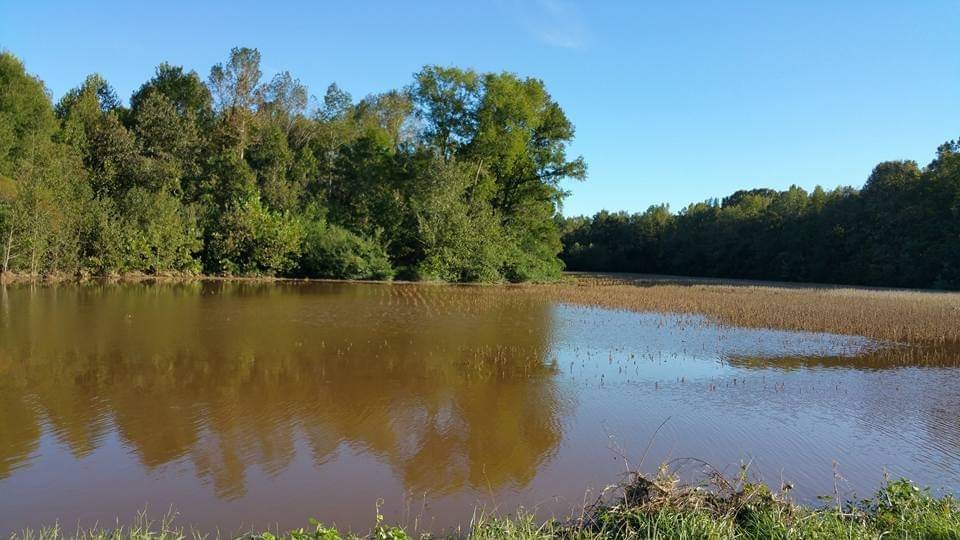Register Now for Climate Webinar on April 26
go.ncsu.edu/readext?784390
en Español / em Português
El inglés es el idioma de control de esta página. En la medida en que haya algún conflicto entre la traducción al inglés y la traducción, el inglés prevalece.
Al hacer clic en el enlace de traducción se activa un servicio de traducción gratuito para convertir la página al español. Al igual que con cualquier traducción por Internet, la conversión no es sensible al contexto y puede que no traduzca el texto en su significado original. NC State Extension no garantiza la exactitud del texto traducido. Por favor, tenga en cuenta que algunas aplicaciones y/o servicios pueden no funcionar como se espera cuando se traducen.
Português
Inglês é o idioma de controle desta página. Na medida que haja algum conflito entre o texto original em Inglês e a tradução, o Inglês prevalece.
Ao clicar no link de tradução, um serviço gratuito de tradução será ativado para converter a página para o Português. Como em qualquer tradução pela internet, a conversão não é sensivel ao contexto e pode não ocorrer a tradução para o significado orginal. O serviço de Extensão da Carolina do Norte (NC State Extension) não garante a exatidão do texto traduzido. Por favor, observe que algumas funções ou serviços podem não funcionar como esperado após a tradução.
English
English is the controlling language of this page. To the extent there is any conflict between the English text and the translation, English controls.
Clicking on the translation link activates a free translation service to convert the page to Spanish. As with any Internet translation, the conversion is not context-sensitive and may not translate the text to its original meaning. NC State Extension does not guarantee the accuracy of the translated text. Please note that some applications and/or services may not function as expected when translated.
Collapse ▲
Flooded agricultural field. Photo by Debbie Roos.
The North Carolina Cooperative Extension, Chatham County Center will offer a Climate Webinar on April 26, 2021, from 7–9 p.m EST.
Farmers and gardeners pay close attention to the weather and its effect on both daily activities as well as production quality and yield. They are also interested in climate and how it affects the viability and sustainability of agricultural enterprises.
Rebecca Ward, Assistant State Climatologist for the NC Climate Office, will be the webinar presenter. Rebecca will highlight tools and resources from the NC Climate Office that are useful to farmers and gardeners, and discuss weather patterns and statistics for the region. Participants will be able to ask questions in the Open Q&A session. Rebecca’s bio is included below.
Webinar Agenda:
About the North Carolina State Climate Office
- Staff and mission
- Climate Office tools and resources (e.g., chill models, climate data, recent weather, webinars, etc.)
Weather patterns and statistics for 2020 and 2021
- Focus on North Carolina as a whole and the piedmont region specifically
- Trends and records for 2020 and 2021 (so far) and how these statistics fit into the longer-term climate picture
What weather is in store for the rest of 2021?
- Climate outlooks through the summer and fall and relation to global patterns
Climate change and what it means for the piedmont
- Expectations for the next few decades in the piedmont (e.g., summertime heat, nighttime warming, hurricanes)
Open Q&A
This webinar is free but pre-registration is required. The deadline for registration is April 25.
Registrants will receive an email prior to the event with the Zoom link.
Speaker Bio:
Rebecca’s work at the NC Climate Office centers around delivering climate extension and education to a variety of audiences and working with various sectors in the state to provide climate data and information to support decision making. Recently, she has worked closely with NC State Extension and N.C. Cooperative Extension to deliver climate-focused workshops, and to develop decision support tools that incorporate climate data and expertise to inform planting and management decisions for agricultural crops. Previously, she was an active member of the NC Drought Management Advisory Council, helping to monitor drought conditions across the state, and also worked on several research projects to explore and analyze new drought indicators and indices and systematically develop and evaluate new informational resources to communicate current drought information. She holds BS degrees in Meteorology and Applied Mathematics, an MS in Atmospheric Science, and is currently working toward her Ph.D. in Science Education, all from NC State University.
NC State University and N.C. A&T State University commit themselves to positive action to secure equal opportunity and prohibit discrimination and harassment regardless of age, color, disability, family and marital status, genetic information, national origin, political beliefs, race, religion, sexual identity (including pregnancy), and veteran status. NC State University, N.C. A&T State University, U.S. Department of Agriculture, and local governments cooperating. Persons with disabilities and persons with limited English proficiency may request accommodations to participate by contacting Ginger Cunningham, County Extension Director, at 919.542.8202, ginger_cunningham@ncsu.edu, or in person at the Chatham County office at least 30 days prior to the event.


